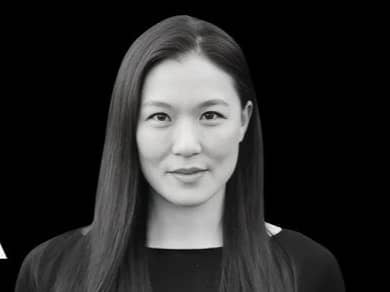위키 구독하기
Share wiki
Bookmark
Lily Liu
0%
Lily Liu
**릴리 리우(Lily Liu)**는 기술, 금융, 블록체인 분야의 배경을 가진 기업가이자 투자자입니다. 그녀는 솔라나(Solana) 재단(Foundation)의 회장으로서 솔라나(Solana) 네트워크의 성장과 보안을 지원하는 이니셔티브에 참여하고 있습니다. [1]
교육
리우는 스탠퍼드 대학교에서 경제학, 국제 관계, 예비 의학을 전공하여 학사 학위를 받았습니다. [7]
경력
리우는 2004년 홍콩의 모건 스탠리에서 여름 애널리스트로 금융 분야 경력을 시작했으며, 그곳에서 아시아 태평양 지역의 기술, 미디어, 통신 그룹과 협력했습니다. 이듬해에는 맥킨지 앤 컴퍼니에 선임 어소시에이트로 합류하여 2009년까지 근무했습니다. 맥킨지에서 그녀는 금융 기관의 위험 관리, 에너지 및 운송 부문의 운영 개선, 제약 회사의 합병 후 통합 계획 등 다양한 산업 분야에 걸쳐 성과 혁신 프로젝트에 집중했습니다.
2009년부터 2011년까지 리우는 KKR Capstone의 운영 팀에서 근무하며 유럽 소매 및 미국 의료와 같은 분야의 포트폴리오 회사의 성과를 개선하기 위한 이니셔티브를 구현했습니다. 그녀의 업무에는 공급망 최적화 및 전자 건강 기록 전략 개발이 포함되었습니다.
2011년 리우는 기업 리더십 역할로 전환하여 2014년까지 Chinaco Healthcare Corporation의 최고 재무 책임자(CFO)를 역임했습니다. 이 직책에서 그녀는 중국의 대규모 사립 병원 개발을 위한 재무 운영, 인수 합병 및 조달을 관리했습니다. 2015년에는 암호화폐 산업에 진출하여 Earn.com을 공동 창립하고 CFO로도 활동했습니다. 코인베이스(Coinbase)가 Earn.com을 인수한 후 그녀는 2018년까지 회사에 계속 근무했습니다. 2018년 4월부터 리우는 자신의 회사인 Volar Capital을 통해 암호화폐(cryptocurrency), 기술 및 자문 업무에 집중하는 투자자로 활동하고 있습니다.
2020년에는 Aiden Health와 Operation Masks를 공동 설립했는데, 이 두 이니셔티브는 의료 및 팬데믹 대응과 관련되어 2021년까지 활동했습니다. 2021년부터 리우는 솔라나(Solana) 재단(Foundation) 회장, Anagram Ltd 공동 창립자, Osmosis Labs 기여자 등 여러 직책을 동시에 맡았습니다. 또한 2023년까지 Airtm의 이사회 멤버로 활동했으며 2024년 9월에는 Ledger의 이사회에 합류했습니다. [8]
인터뷰
Ship or Die
5월 Accelerate 2025에서 열린 노변담화에서 R3의 David Rutter와 리우는 공공 및 사설 블록체인(blockchains)의 융합에 대해 논의했습니다. 블록체인(blockchain) 산업에서의 광범위한 경험을 바탕으로 Rutter는 탈중앙화 금융(DeFi)(decentralized finance (DeFi))와 전통 금융(TradFi) 간의 간극을 좁히는 것에 대한 기대를 표명했습니다. 그는 진화하는 규제 환경과 DeFi(DeFi) 공간의 성숙도, 특히 솔라나(Solana)의 기능으로 인해 시기가 적절하다고 강조했습니다. Rutter는 TradFi 부문의 이해 관계자들이 더 넓은 청중에게 금융 시장에 대한 더 나은 접근성을 제공하므로 공공 블록체인(blockchain) 생태계와의 협력에 대한 열정을 표명했다고 지적했습니다. 그는 또한 기관 참여를 유도하기 위해 공간에서 혁신하는 동시에 규제 문제를 해결하는 것의 중요성에 대해 논의했습니다. 전반적으로 Rutter는 블록체인(blockchain) 기술의 통합을 통해 금융 시장의 유동성과 접근성을 향상시키는 데 초점을 맞춰야 한다고 강조했습니다. [4]
Big Finance
2025년 5월 AIFC Special 팟캐스트에서 리우는 카자흐스탄 행사에서 블록체인(blockchain) 공간에서 솔라나(Solana)의 역할에 대해 논의했습니다. 그녀는 2018년에 출시된 고성능 블록체인(blockchain)인 솔라나(Solana)가 신속한 거래 기능을 제공하여 분산형 금융 시장 인프라 역할을 하는 것을 목표로 한다고 설명했습니다. 리우는 다른 블록체인(blockchains)(예: 이더리움(Ethereum))에서 볼 수 있는 순차적 처리와 대조적으로 병렬 트랜잭션 처리를 가능하게 하는 고유한 역사 증명(proof-of-history) 메커니즘을 강조했습니다. 그녀는 BlackRock 및 Fidelity와 같은 기존 회사가 더 넓은 자산 배포 및 유동성 증가를 위해 토큰화를 탐색하기 시작한 전통 금융의 진화하는 환경에 대해 논의했습니다. 리우는 블록체인(blockchain) 애플리케이션에 대한 규제 명확성의 중요성을 강조하고 암호화폐(cryptocurrency) 공간에서 밈코인(memecoins)이 제기하는 과제를 강조했습니다. 대화 전반에 걸쳐 그녀는 경제를 자극하는 데 있어 인재와 자본 형성의 중요성을 강조하며, 특히 카자흐스탄과 같은 지역에서는 진화하는 블록체인(blockchain) 시장에서 자산과 기술을 활용할 수 있습니다. [3]
솔라나의 미래
2025년 5월 바이낸스(Binance)와의 인터뷰에서 리우는 솔라나(Solana) 생태계와 금융 인터넷을 구축할 수 있는 잠재력에 대한 열정을 표명했습니다. 전통 금융 분야의 배경과 암호화폐(crypto) 공간으로의 여정을 되돌아보며 그녀는 커뮤니티 소유권의 중요성과 수십억 명이 접근할 수 있는 새로운 온체인 경제를 창출하는 데 있어 탈중앙화 금융(DeFi)(decentralized finance (DeFi))의 역할을 강조했습니다. 리우는 솔라나(Solana) 내 개발자 커뮤니티의 성장이 놀라울 정도이며 강력한 인프라가 글로벌 결제 및 금융 거래를 촉진하는 데 중요하다고 제안했습니다. 그녀는 스테이블코인(stablecoins)의 유용성을 이 인프라의 기본 요소로 강조했습니다. 그녀는 밈코인(memecoins) 현상에 대해 논의하면서 투기적 성격과 검증자(validators)를 위한 커뮤니티 참여 및 자금 조달을 유도하는 능력을 모두 인식했습니다. 리우는 개방형 금융의 미래와 돈의 지속적인 디지털화에 대한 낙관론을 표명하면서 결론을 내렸습니다. [2]
솔라나의 부상
2025년 1월 eToro의 Conversations with Leaders 팟캐스트에서 Sam North는 리우와 eToro의 공동 창립자이자 CEO인 Yoni Asia를 초청하여 솔라나(Solana)의 부상과 건축 혁신에 대해 논의했습니다. 그들은 2017년과 2018년 사이에 설계된 솔라나(Solana)가 단순한 거래 및 투기가 아닌 다양한 거래 경제를 촉진할 수 있는 확장성이 뛰어난 블록체인(blockchain)을 만드는 것을 목표로 한다고 설명했습니다. 리우는 트랜잭션의 병렬 처리를 허용하여 처리량과 효율성을 크게 높이는 솔라나(Solana)의 고유한 "역사 증명(Proof of History)" 메커니즘의 중요성을 강조했습니다. 그들은 또한 혁신과 채택을 촉진할 수 있는 암호화폐(cryptocurrency)에 대한 미국과 유럽의 규제 태도의 최근 긍정적인 변화의 광범위한 의미에 대해 논의했습니다. 대화는 또한 밈코인(memecoins) 현상, 투기적 성격, 커뮤니티 토큰이 더 명확한 규정의 혜택을 받을 수 있다는 아이디어를 더 탐구했습니다. 전반적으로 토론은 암호화폐(cryptocurrency) 및 탈중앙화 금융(decentralized finance)의 진화하는 환경에서 솔라나(Solana)의 역할에 대한 낙관적인 전망을 반영했습니다. [5]
프레젠테이션
인터넷 자본 시장
2025년 5월 두바이 TOKEN2049에서 리우는 DeFi(DeFi) 플랫폼에서 NFT(NFT), 게임 등을 지원하는 플랫폼으로 전환한 솔라나(Solana)의 진화에 대해 논의했습니다. 그녀는 현재 자본 시장의 한계를 강조하면서 유리한 경제 지표에도 불구하고 개인들 사이에서 광범위한 불안감을 지적하고 노동 가치와 자본 가치 간의 격차가 커지고 있다고 지적했습니다. 리우는 암호화폐(crypto) 부문이 커뮤니티 역량 강화를 통해 보편적 기본 소득에서 보편적 기본 기회로 전환할 것을 제안하면서 자본 시장에 대한 보편적 접근을 창출하는 것을 목표로 한다고 강조했습니다. 그녀는 사기업이 공공 시장에 접근하는 데 있어 어려움을 설명하고 블록체인(blockchain)이 투자 기회를 민주화할 수 있는 잠재력을 강조했습니다. 리우는 솔라나(Solana)가 다양한 자산 클래스를 통합하여 글로벌 금융 포용성을 촉진하고 시장 전체의 유동성을 통합하는 자본 시장의 주요 플랫폼이 되는 것을 목표로 한다고 결론지었습니다. [6]
잘못된 내용이 있나요?
